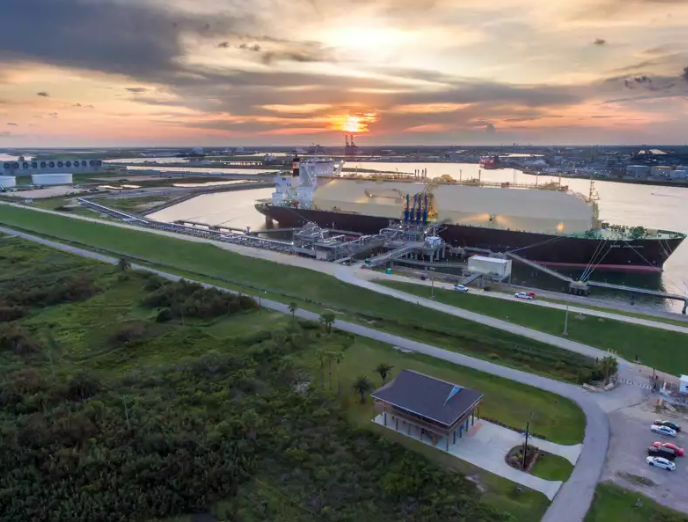The Biden administration paused approval of new facilities that would export liquified natural gas in order to study the impact of these projects on the climate. The Natural Gas Act charges the U.S Department of Energy with determining whether gas exports to certain countries are in the public interest. With the damage caused by climate change getting worse, the President is right to ask for the facts before moving forward. After all, natural gas produces carbon dioxide when burned and methane pollution when leaked — both powerful climate pollutants.
Lots of people have opinions about whether sending U.S natural gas to other parts of the world is a good thing. But there’s not a lot of real data to make an informed decision. The oil and gas industry, of course, wants to sell its product — and has been the loudest proponent for various projects to expand our national export capacity. But this decision should be based on what’s in the public interest, not just what’s best for oil companies.
Biden wants facts first: pauses LNG permits to analyze climate impact Click To Tweet
And to be clear, the pause is about future capacity not current. The decision DOE makes on LNG will not impact facilities already operating or authorized. The 48,000,000,000 cubic feet per day of natural gas (nearly half of all US production) that is exported to our allies is wholly unaffected. In addition, facilities that are under construction or have already been permitted will extend that capacity by an additional 9,700,000,000 cubic feet per day.
There are certainly upsides to exports, like stabilizing global energy markets after the Russian invasion of Ukraine and reassuring key U.S. allies. But given the damage being caused by the climate crisis — and the fact that the global energy market and geopolitical situation could be very different when these facilities are finished — that can’t be the whole story.
Negative climate impacts work decidedly against the public interest, so more and better data is essential. As the world’s largest economy and largest oil and gas producer, the U.S has a special responsibility to deal with the issue. The U.S has called for all nations to address climate change, which means it should have a clear understanding of what its oil and gas exports mean for deepening or slowing the climate crisis.
Building new LNG export facilities will create infrastructure that will last for decades, potentially locking in negative climate impacts far into the future. It’s why we need to take a hard look at the emissions profile of global gas supplies, starting at production basins and extending through its export, delivery and use. And we need to use actual measurement data instead of engineering estimates and emissions factors. Then we need to compare that impact to the alternatives — including both clean energy and coal.
We need to answer key questions: Is the gas actually going to the right places to displace coal, and is that new coal or existing coal? Is U.S natural gas displacing renewables? Would more gas use create more petrochemical production, pollution and economic and health harm for surrounding communities? How much of this demand can be met without new infrastructure, by capturing more of the 16 million metric tons of gas wasted through methane leaks and flaring and venting? And those questions need to be considered based on the specific realities of the each market likely to import and use this fuel — We need more data about the health impacts that oil and gas operations impose on the communities in which they are located. Many of these communities have borne the brunt of energy production across the United States and increasing export capacity can involve substantially increasing that burden. These facilities harm air quality, produce other pollutants and are often built in vulnerable coastal ecosystems.
Decisions with decades or more of consequence must be rooted in data. We’re about to enter a new era of widely available information on climate pollution. EDF will shortly be launching a satellite that will track methane pollution — which is driving more than a quarter of current global warming. This highly sophisticated device will produce data on the sources of pollution and make that information available to scientists, companies and activists around the world. Those taking climate change seriously — reducing methane emissions and keeping them low — will be recognized for their actions. Poor performers will be identified and held accountable.
Data is only one piece of the puzzle. It must be combined with smart rules from governments, action by companies and careful decision-making on projects. It is good news that, in addition to new rules from the Biden EPA to cut oil and gas methane pollution by 80%, we are taking a closer look before building out of new fossil fuel infrastructure. When it comes to energy, the public interest requires science, smart policy and economics. And all of that must be based on the facts. President Biden is right to demand them.
